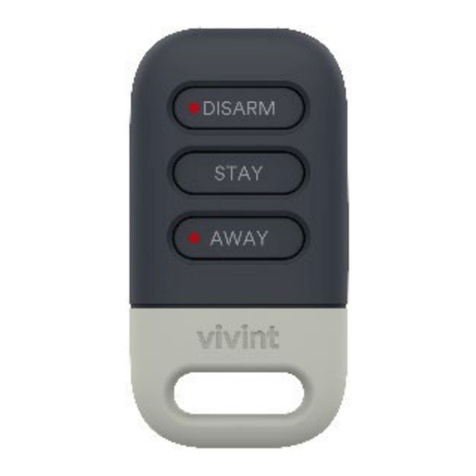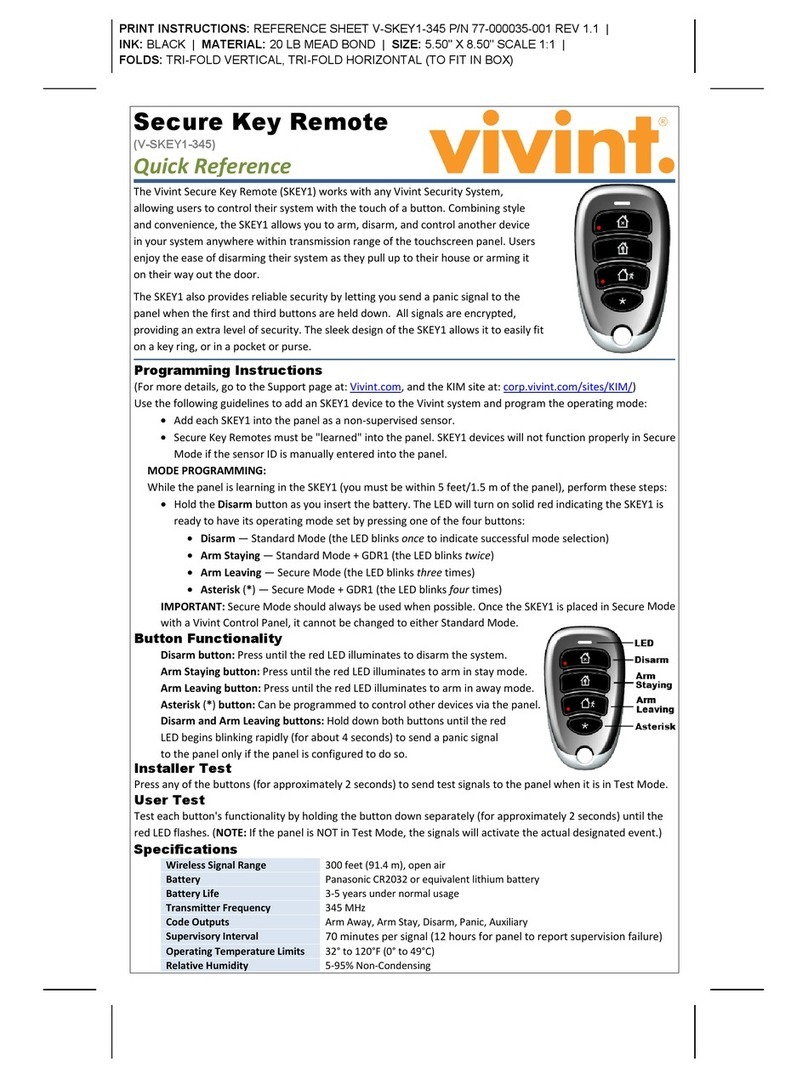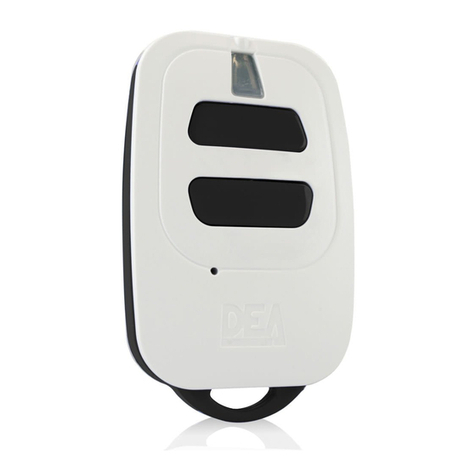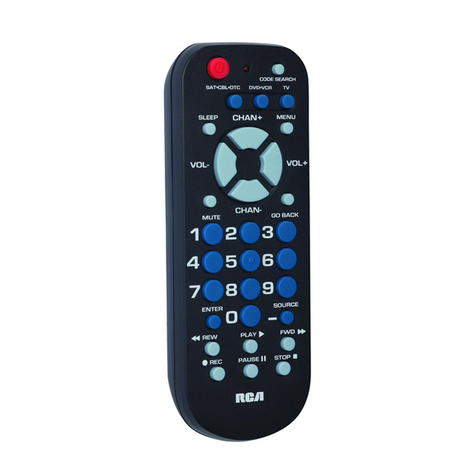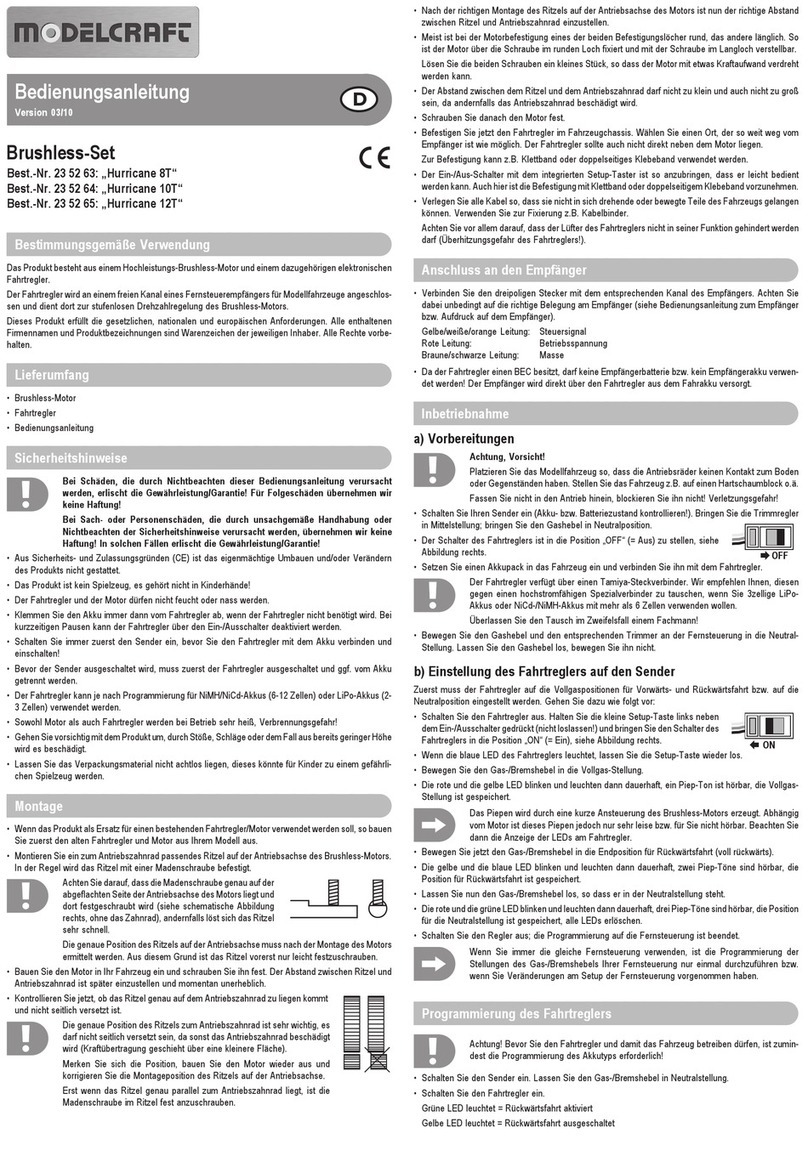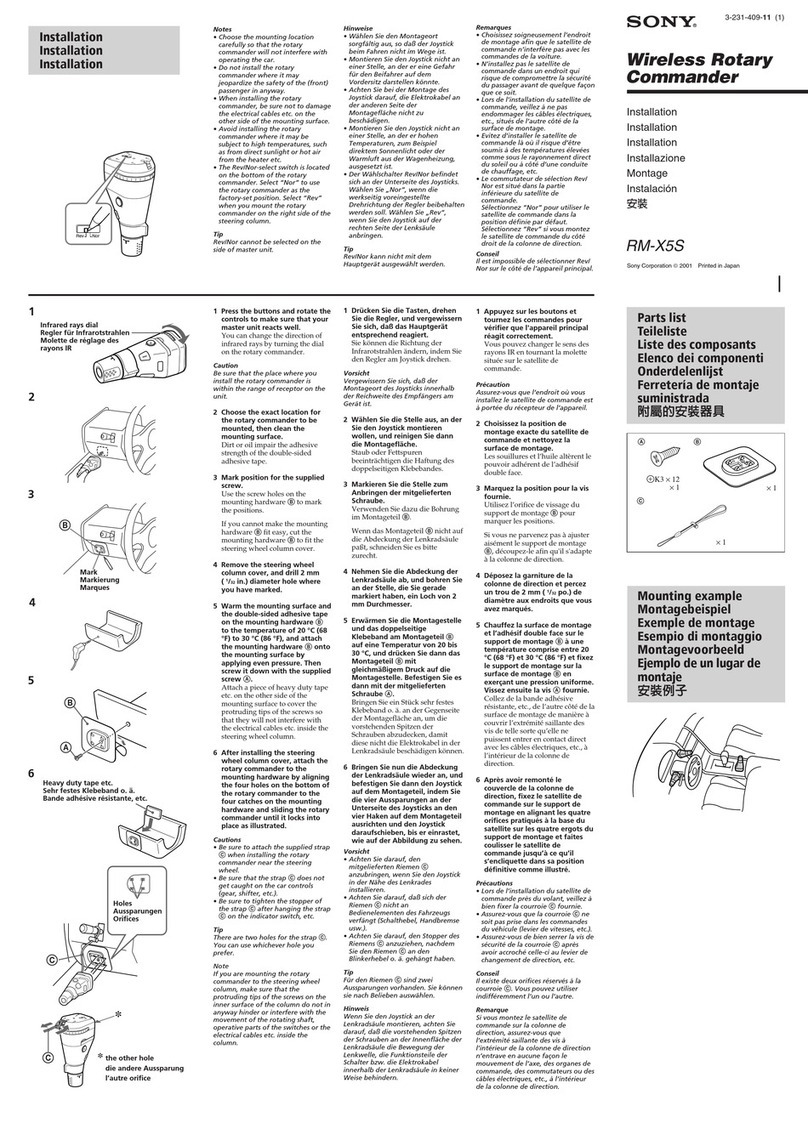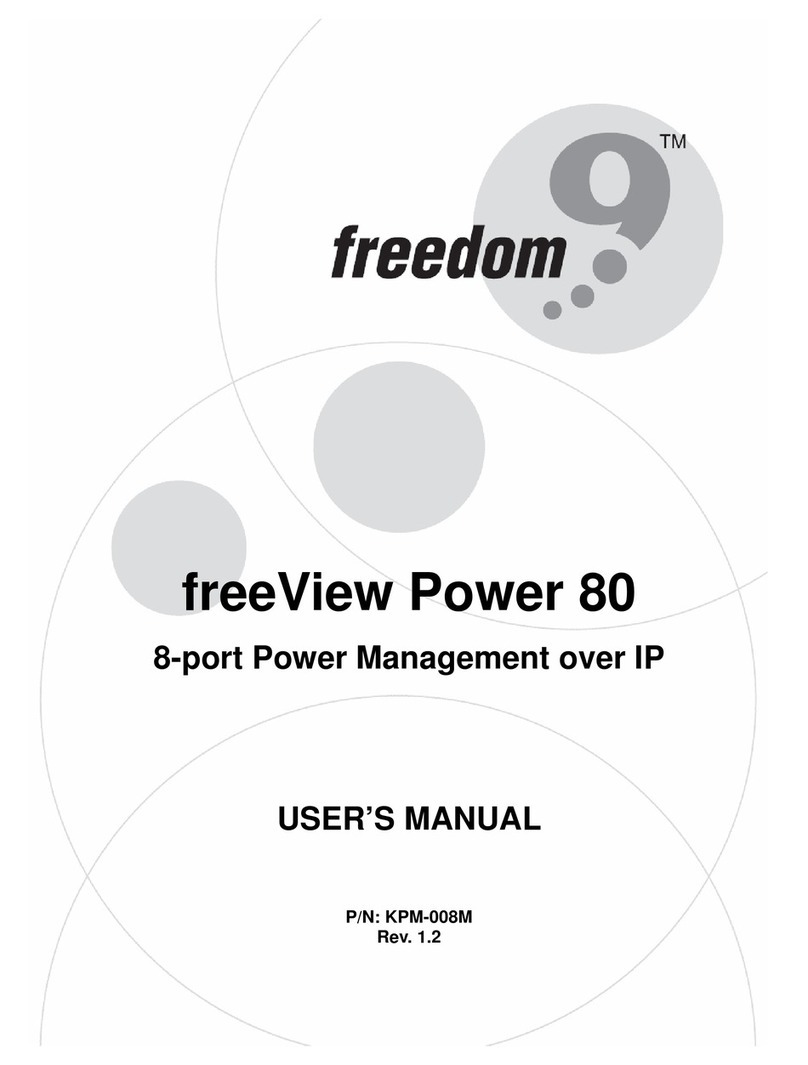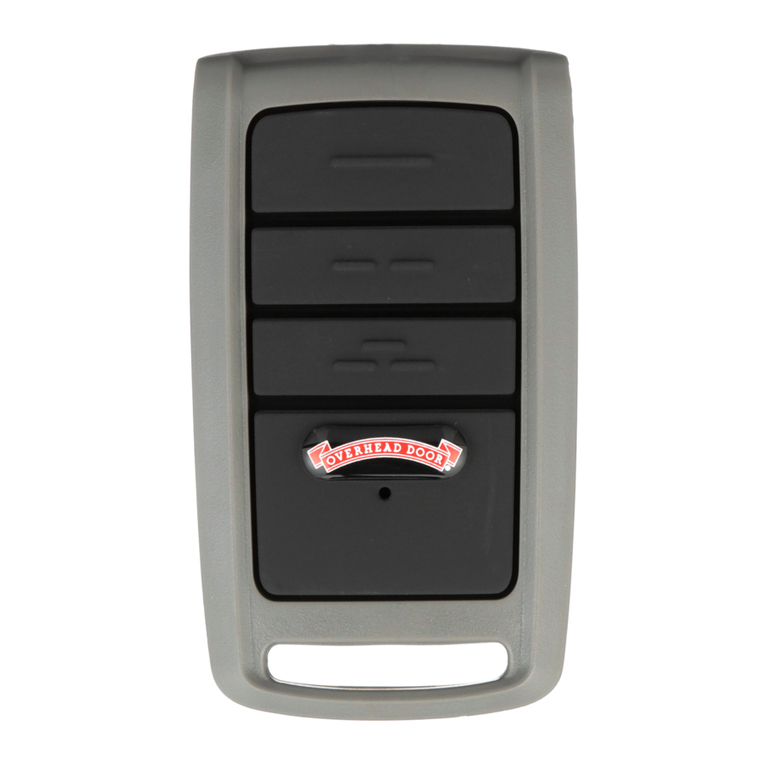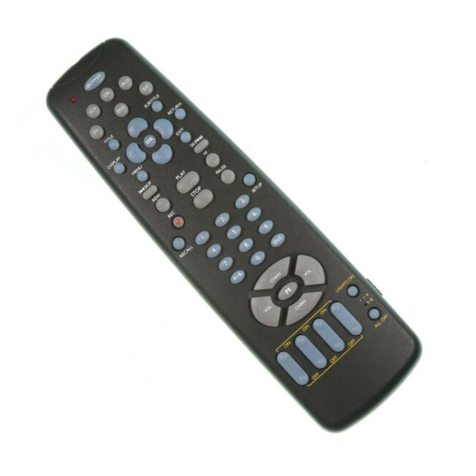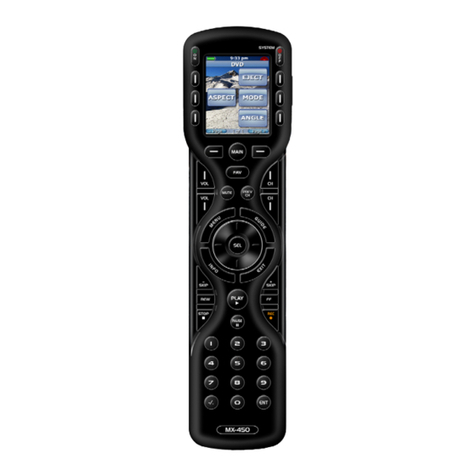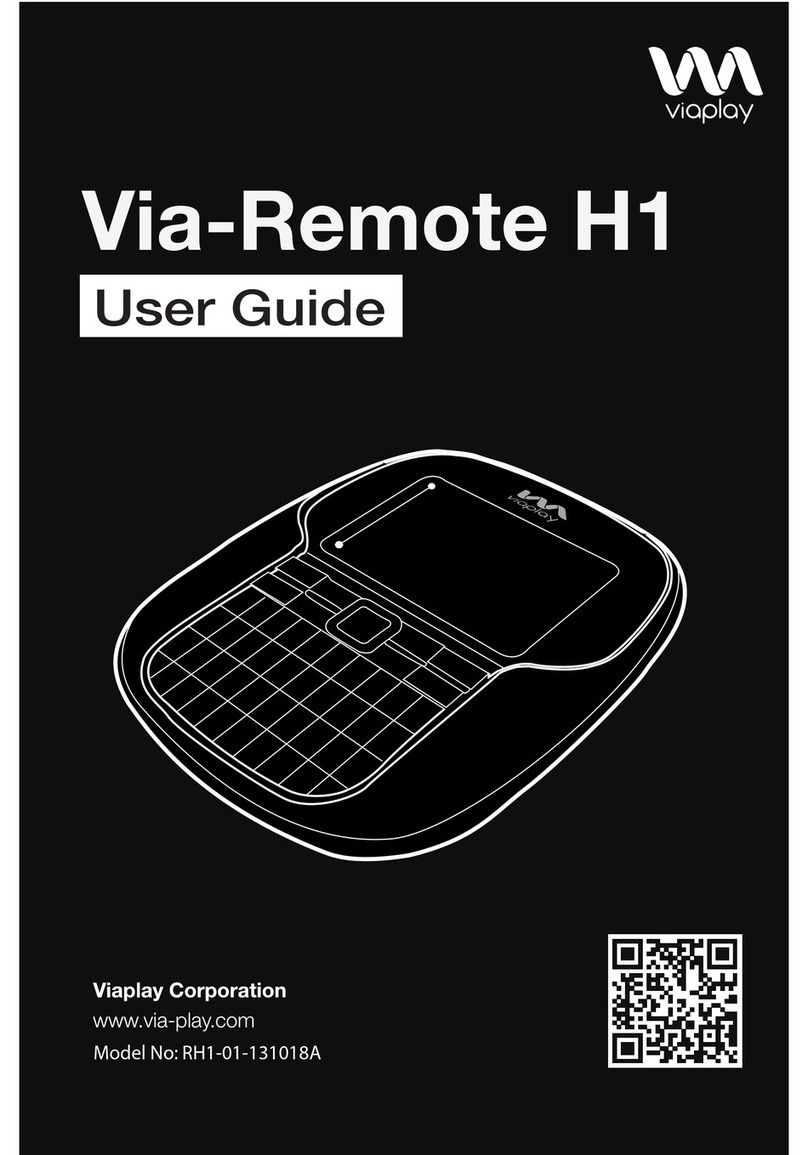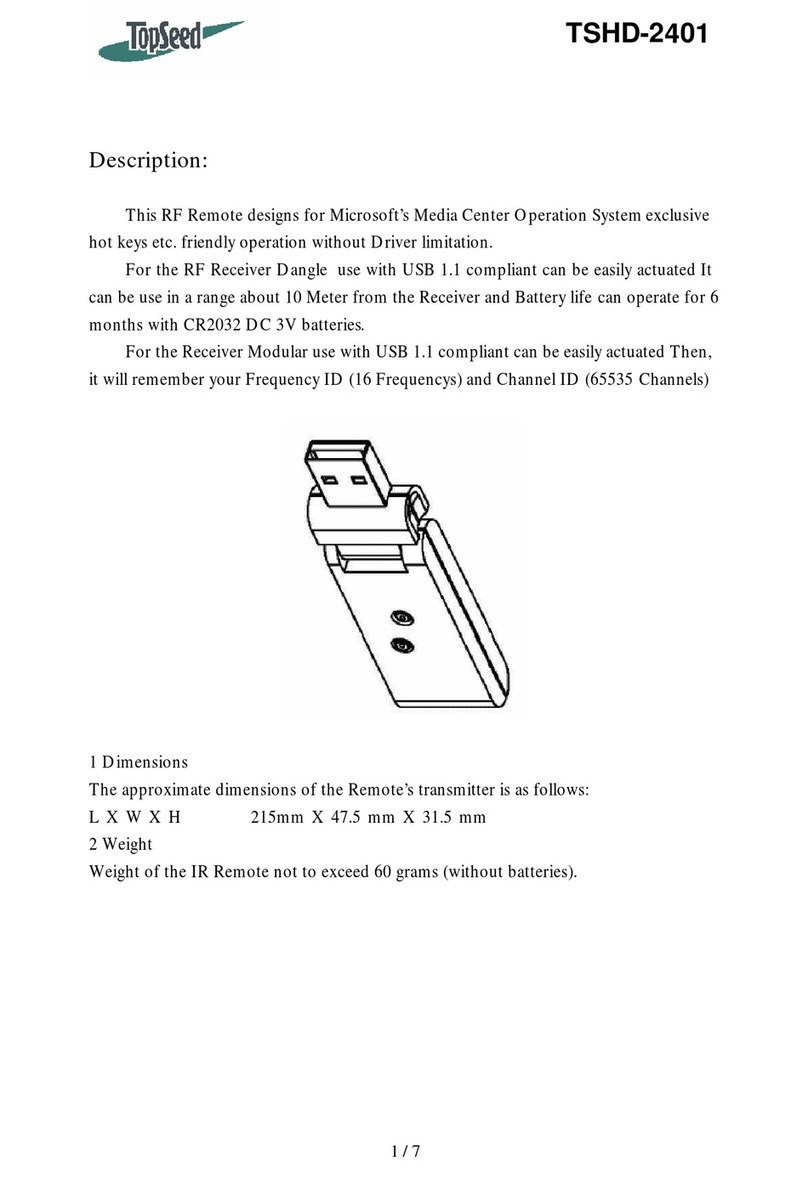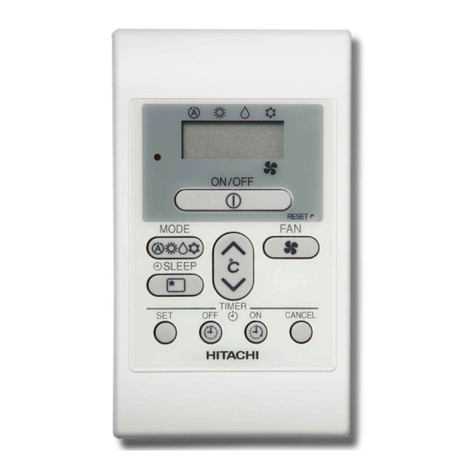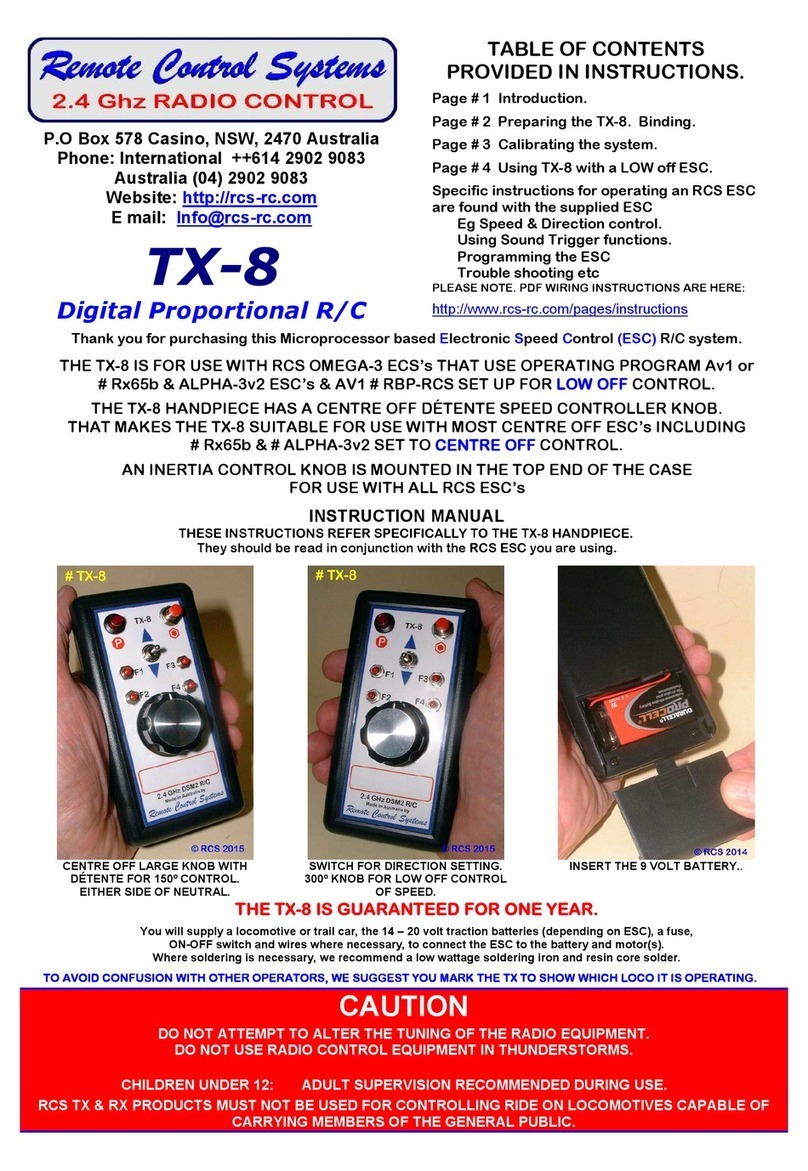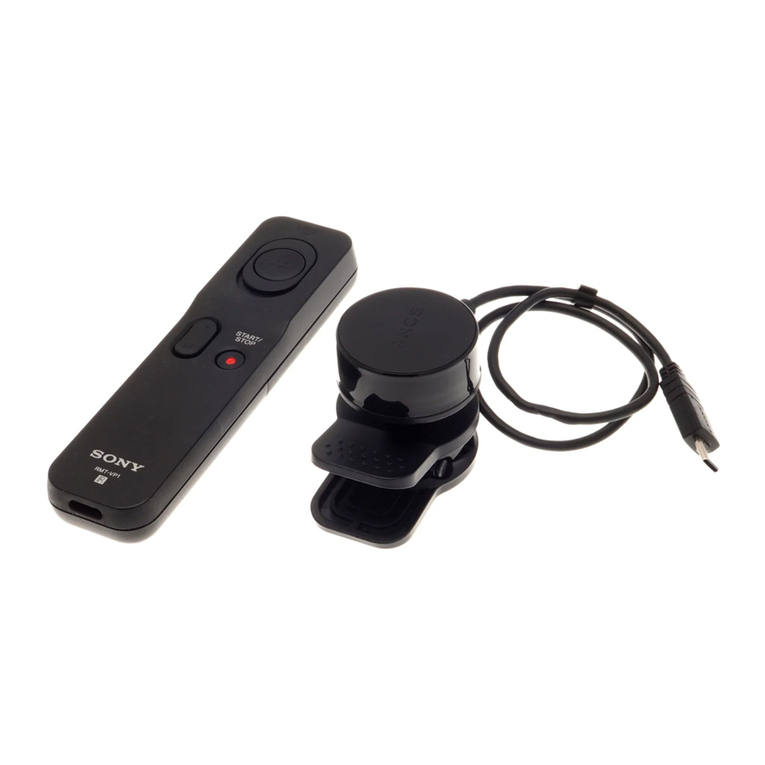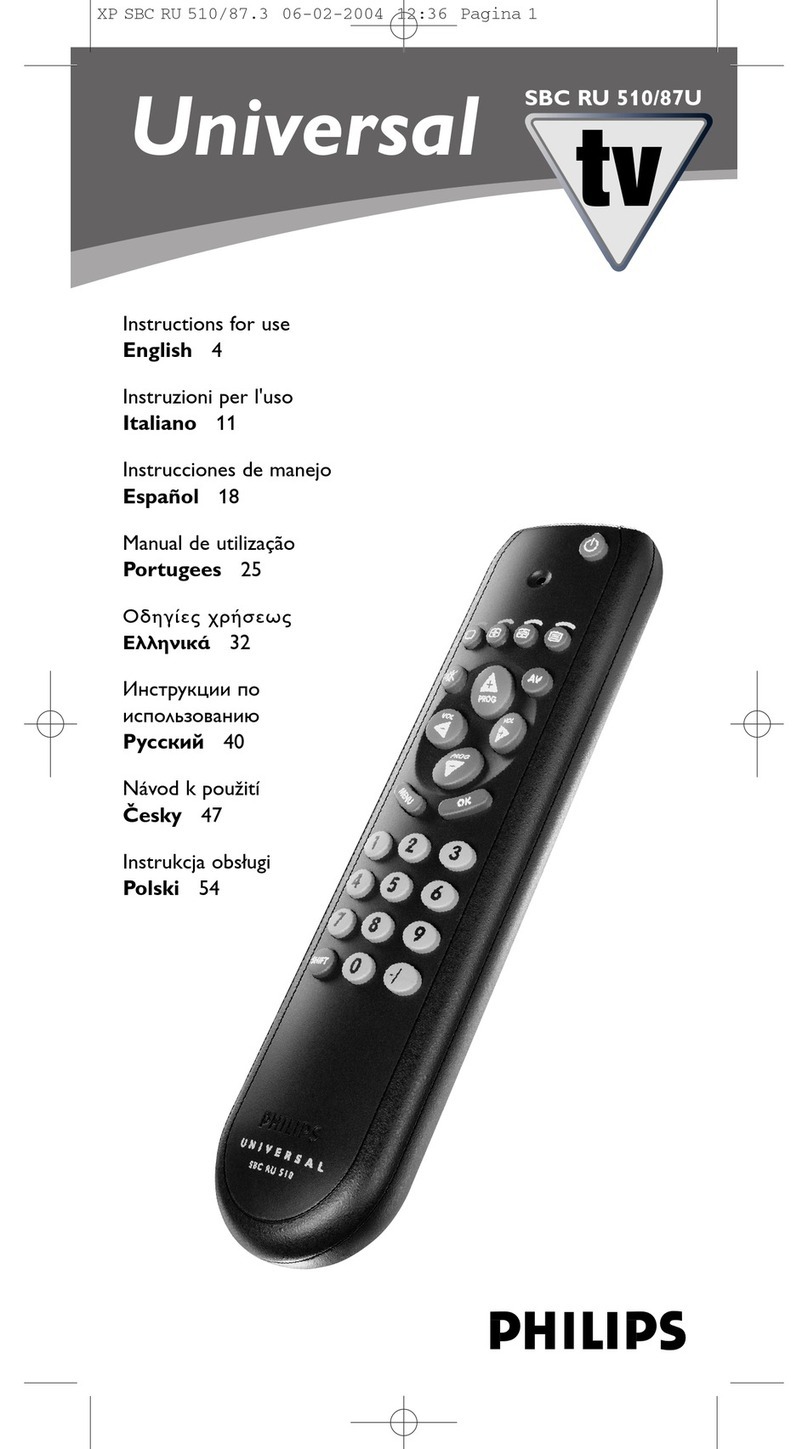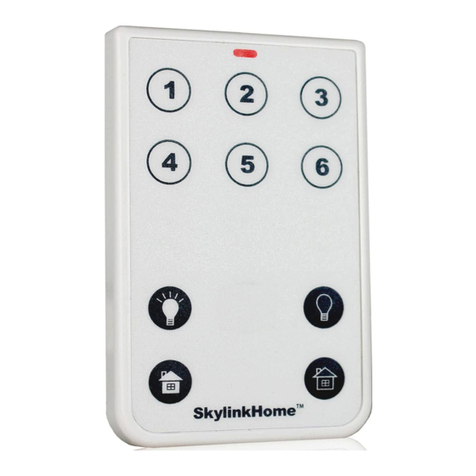Vivint V-SKEY1-345 User manual

Programming Instructions
Use the
se guidelines to add an SKEY1 device to the Vivint system and program its operating mode.
OPERATING MODE PROGRAMMING:
When programming an SKEY1 device in Secure Mode (IMPORTANT: up to four devices
can be in Secure Mode),
it must be within 5 feet/1.5 m of the panel and kept there until the LED stops flashing (about 10-15 seconds).
•Open the SKEY1 device, insert the battery, and close the device tightly.
•Within 60 seconds of inserting the battery, press one of the buttons (described below) for 10 seconds.
•Disarm Button (1) — Legacy Mode (the LED blinks once to indicate successful mode selection)
•Arm Staying Button (2) — Legacy Mode + GDR1 (the LED blinks twice to indicate this mode)
•Arm Leaving Button (3) — Secure Mode (the LED blinks three times to indicate this mode)
•Asterisk* Button (4) — Secure Mode + GDR1 (the LED blinks four times to indicate this mode)
Secure Mode
, with the Arm Leaving Button (3), should always be used if possible. Once the SKEY1 device is
programmed
in either of the Secure Modes (3 or 4) it cannot be changed to either of the Legacy Modes (1 or 2).
IMPORTANT:If the panel is replaced when an SKEY1 device is using either of the Secure Modes (3 or 4), the
SKEY1 device's operating mode must be reprogrammed with the new panel.
The Vivint Secure Key Remote (SKEY1) works with any
Vivint system, letting users control
t
heir system with the touch of a button. Combining style and convenience, the SKEY1 key
fob
allows you to arm, disarm, and control another device in your system anywhere
within
transmission range of the panel. Users can disarm their system as they pull up to
their house or arm it on the
ir way out the door. A total of 20 fobs can be added to a
system
with a maximum of 4 in Secure Mode (see below).
T
he SKEY1 also provides protection by letting you send an encrypted panic signal to the
panel when the first and third buttons are held down.
Quick Reference (User Manual)
Installer / User Test
Test
each button's functionality by holding the button down separately (for approximately 2 seconds) until the
red LED flashes. (NOTE: If the panel is NOT in Test Mode, the signals will activate the actual designated event.)
Button Functionality
Disarm:Press until the red LED illuminates to disarm the system.
Arm Staying:Press until the red LED illuminates to arm in stay mode.
Arm Leaving:Press until the red LED illuminates to arm in away mode.
Asterisk (*):Can be programmed to control other devices via the panel.
Disarm and Arm Leaving:Hold down both buttons until the red
LED begins blinking rapidly (for about 4 seconds) to send a panic signal.
PRINT INSTRUCTIONS:REFERENCE SHEET V-SKEY1-345 P/N 77-000035-001 REV 2.1 |
INK:
BLACK | MATERIAL: 20 LB MEAD BOND | SIZE:5.50" X 8.50" SCALE 1:1 |
FOLDS: TRI-FOLD VERTICAL, TRI-FOLD HORIZONTAL (TO FIT IN BOX)
Technical Specifications
Vivint Part Number (P/N)
V-SKEY1-345
Model Number (M/N)
KF01
Wireless Signal Range
300 ft. (91.4 m), open air
Battery
Panasonic CR2032 or
equivalent lith. battery
Battery Life
3-5 yrs (normal usage)
Transmitter Frequency
345 MHz
Code Outputs
Arm Away, Arm Stay,
Disarm, Panic, Auxiliary
Supervisory Interval
Not applicable
Operating Temp. Limits
32° to 120°F (0° to 49°C)
Relative Humidity
5-95% Non-Condensing
Standards Certifications & Listings
UL 985
Standard for Household Fire Warning
System Units
UL 1023
Standard for Household Burglar-Alarm
System Units
UL 1610
Standard for Central-Station Burglar-
Alarm Units
ULC-S545
Standard for Residential Fire Warning
Systems Control Units
ULC Subject
C1023
Standard for Household Burglar Alarm
System Units
*For complete regulatory compliance
i
nformation, go to: vivint.com/fcc.
Secure Key Remote
(V-SKEY1-345)

Battery Installation
To install or replace the battery, insert a coin into the top
left corner slot and carefully twist to open the device.
NOTE: The red LED will blink either one, two, three, or four times upon battery insertion, indicating the operating mode.
Use only the recommended replacement battery type (see Specifications).
© 2020 Vivint Inc. All Rights Reserved. | www.vivint.com | M/N: KF01 | Doc P/N: 77-000035-001 Rev. 2.1
FCC and ISED Canada Regulatory Compliance Declarations*
CAUTION:
Unauthorized changes or modifications could void the user’s authority to operate the equipment.
This device
has been tested and found to comply with the limits for a Class B digital device, pursuant to Part 15 of FCC Rules and Industry Canada
license
-exempt RSS standard(s). Operation is subject to the following two conditions:
(1) This device may not cause harmful interference, and
(2) This device must accept any interference received, including interference that may cause undesired operation of the device.
These limits are designed to provide reasonable protection against harmful interference in a residential
installation. This equipment generates, uses,
and can radiate radio frequency energy and
, if not installed and used in accordance with the instructions, may cause harmful interference to radio
communications. However, there is no guarantee that interferen
ce will not occur in a particular installation. If this equipment does cause harmful
interference to radio or television reception, which can be determined by turning the equipment off and on, the user is encou
raged to try to correct
the interference by on
e or more of the following measures:
•Reorient or relocate the receiving antenna.
•Increase the separation between the equipment and the receiver.
•Connect the equipment into an outlet on a circuit different from that to which the receiver is connected.
•Consult the dealer or an experienced radio/television technician for help.
PRUDENCE
:Changements ou modifications pourraient annuler le droit de l'utilisateur à utiliser l'équipement non autorisées.
Conformément à la réglementation d'Industrie Canada, le
présent émetteur radio peut fonctionner avec une antenne d'un type et d'un gain maximal
(ou inférieur) approuvé pour l'émetteur par Industrie Canada. Dans le but de réduire les risques de brouillage radioélectriqu
e à l'intention des autres
utilisateurs, il
faut choisir le type d'antenne et son gain de sorte que la puissance isotrope rayonnée équivalente (p.i.r.e.) ne dépasse pas l'intensité
nécessaire à l'établissement d'une communication satisfaisante.
Le présent appareil est conforme aux CNR d’Industrie C
anada applicables aux appareils radio exempts de licence. L’exploitation est autorisée aux deux
conditions suivantes:
(1) l’appareil ne doit pas produire de brouillage, et (2) l’utilisateur de l’appareil doit accepter tout brouillage radioélectrique subi, même si le
brouillage est susceptible d’en compromettre le fonctionnement.
Ces limites sont conçues pour fournir une protection raisonnable contre les interférences nuisibles dans une installation résidentielle. Cet équipement
génère, utilise et peut ém
ettre une énergie de radiofréquence et, s'il n'est pas installé et utilisé conformément aux instructions, il peut causer des
interférences nuisibles aux communications radio. Cependant, il n'existe aucune garantie que des interférences no se produiro
nt pas dans une
installation particulière. Si cet équipement provoque des interférences nuisibles à la réception radio ou télévision, ce qui
peut être déterminé en
mettant l'équipement hors et sous tension, l'utilisateur est encouragé à essayer de corriger l'int
erférence par une ou plusieurs des mesures suivantes:
•Réorienter ou déplacer l'antenne de réception.
•Augmentez la distance entre l'équipement et le récepteur.
•Connecter l'équipement à une sortie sur un circuit différent de celui sur lequel le récepteur est branché.
•Consulter le revendeur ou un technicien radio / télévision expérimenté pour de l'aide.
FCC ID:
2AAAS-KF01, IC: 10941A-KF01
*For
complete regulatory compliance information, go to: vivint.com/fcc
Wireless Product Notice
Wireless communications hardware provides
reliable communication; however, there are limitations which must be observed.
•The transmitters are required to comply with all applicable wireless rules and regulations. As such, they have limited
transmitter power and limited range.
•Wireless signals may be blocked by radio signals that occur on or near their operating frequencies.
WARNING! The polarity of the battery must be observed (as shown in the image).
Improper handling of lithium batteries may result in heat generation, explosion, or fire,
which may lead to personal injury. Replace only with the same or equivalent battery type
as recommended by the manufacturer.
AVERTISSEMENT! La polarité de la batterie doit être observée (comme indiqué dans
l'image). Une mauvaise manipulation des piles au lithium peut conduire à la production
de chaleur, une explosion ou un incendie, ce qui peut entraîner des blessures. Remplacez-
le par le même type ou équivalent de la batterie tel que recommandé par le fabricant.
Batteries must not be recharged, disassembled
, or disposed of in fire.
Disposal of
used batteries must be made in accordance with the waste recovery and recycling
r
egulations in your area.
Keep away from small children. If batteries are swallowed,
promptly see a doctor.
California Only:
This Perchlorate warning applies ONLY to Manganese Dioxide Lithium cells sold or
distributed in California, USA. Perchlorate material special handli
ng may apply. (For more information,
visit:
www.dtsc.ca.gov/hazardouswaste/perchlorate)
Table of contents
Other Vivint Remote Control manuals
